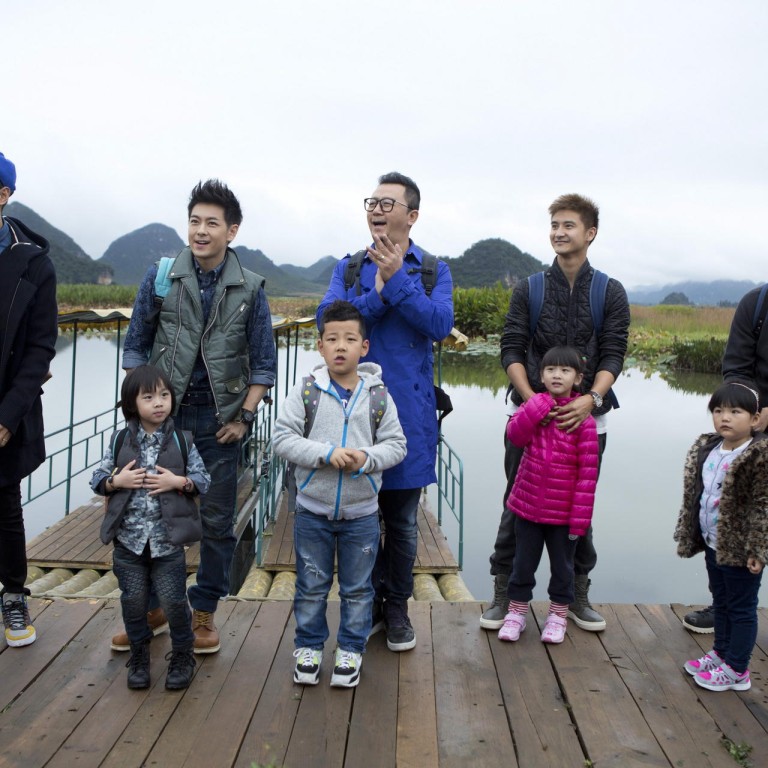
For hit TV shows, too much buzz draws censors' gaze
Programmes that become popular must fend off copycats while avoiding cancellation by the state
Five celebrity dads travel to the countryside with their young children, spending 72 hours in front of the television cameras. They learn about rural living, cook local dishes and try to survive three days on 50 yuan (HK$63) and 10 bottles of water.
So goes the reality show , which airs on Fridays on Hunan Satellite TV. The show is so popular one in 10 mainlanders are watching it, according to a CSM Media Research survey of 46 mainland cities.
As is often the case with mainland television, the show's success has quickly drawn a flood of copycats. Competing satellite stations have as many as 20 similar shows in the pipeline, according to state media reports.
But such success can come at a heavy price - a ban on the entire genre. Many viewers are already predicting the day when the State General Administration of Press, Publication, Radio, Film and Television moves to ban or severely restrict such shows.
Over the past decade, whenever a particular type of show has dominated the airwaves, the regulator has repeatedly issued a ban in the name of "directing public opinions, moral building and audience education".
"There's always a concern that when the market becomes overly competitive, or when TV content from different channels is too similar to each other the regulator will step in," said Hong Zhijun, a senior director with the Xiamen Satellite TV.
Ten years ago, South Korean dramas became so popular that prime-time hours were packed with the shows. The regulator quickly stepped in to ban them - and other foreign dramas - during peak viewing hours. The frenzy has since cooled.
Qiao Mu , dean of the Centre for International Communication Studies at Beijing Foreign Studies University, described the ban as unnecessary .
"China is a nation with a strong culture," Qiao said. "The regulator has no need to worry about foreign influence."

The development of more home-grown programming was one immediate result of the ban. But the copycat phenomenon continued. Not long after it was issued, numerous shows based around the theme of time travel proliferated on the mainland.
Several dramas critical of the Japanese invasion sprang up last year amid national outrage over Japan's purchase of the disputed Diaoyu, or Senkaku, islands.
"The ban on foreign dramas has helped boost home-grown TV content," Hong said.
But the domestically developed shows also had their detractors in the press and on the internet. Both the time-travel and anti-Japanese invasion dramas were widely mocked for their ridiculous and incorrect treatment of historical events. In time, both were banned.
"I believe many such bans are reasonable as some dramas are totally contrary to historical facts," said Guo Yu, deputy general manager of Beijing Yitianxia International Movie and TV Broadcast. "I don't think the masses would like vulgar content. We produce TV series on the Japanese invasion, too; but only those in line with historical facts."
The regulator's reach has continued to expand. Most recently, it issued new regulations allowing each station to air only one foreign programme per year - banning all foreign shows during prime time.
Public interest - or "morality-building" - programming, such as documentaries and educational shows, must account for at least 30 per cent of a station's airtime. They have been limited to one new musical talent show every three months.
Qiao said viewers could respond to market saturation on their own, without government censorship. "The market and media companies can conduct self-discipline well," Qiao said. "Poor-quality programmes would die out eventually once they lose the audience. The regulators can afterward mete out punishment if necessary, but not impose various limitations beforehand."
